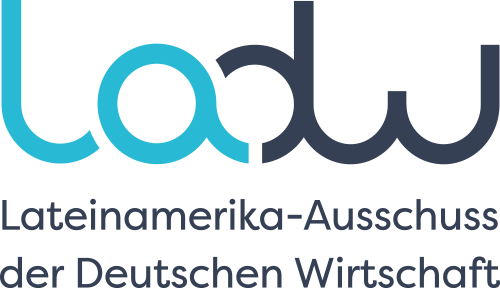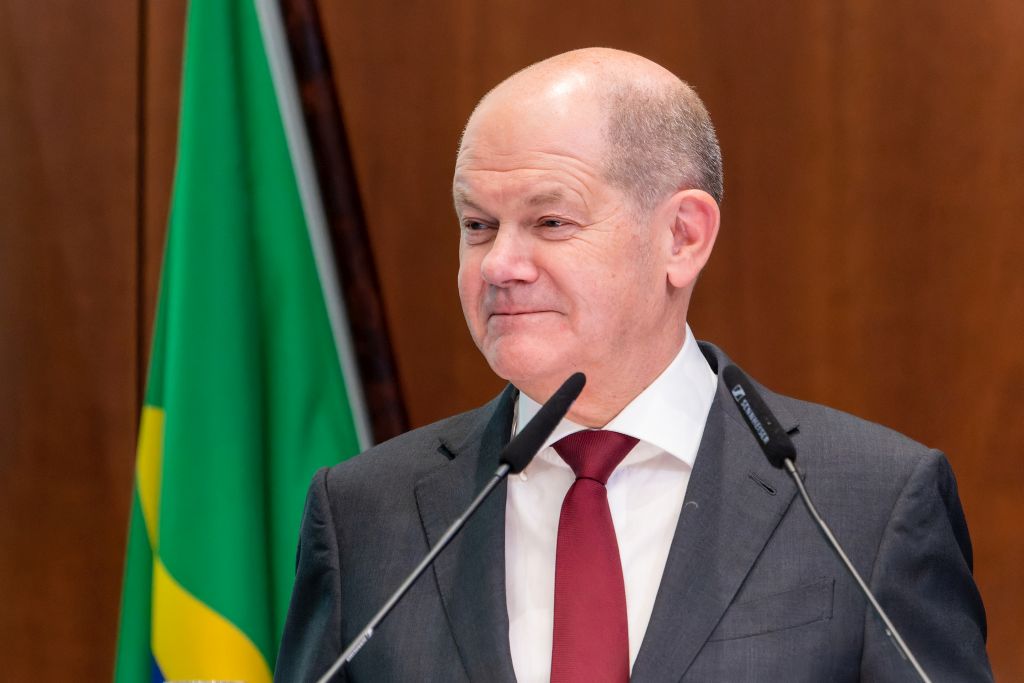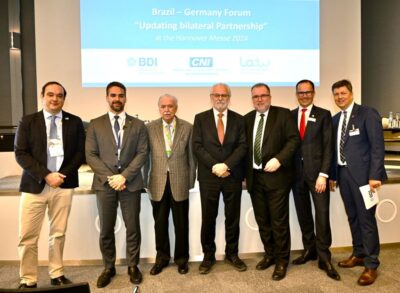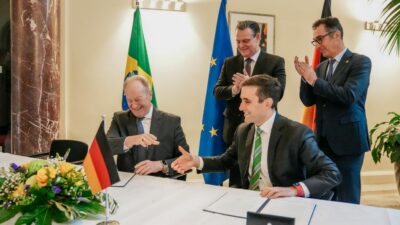Time for a new approach to cooperation with Latin America
LADW presents new CEO agenda on the occasion of Intergovernmental Consultations with Brazil
Growth potential of the Latin America region can strengthen the German economy’s resilience to crises
Great opportunities for cooperation in renewable energies, raw materials, digitalization and skilled workers
The LADW has presented its new CEO Agenda for cooperation with the region on the occasion of the Intergovernmental Consultations with Brazil on December 4, 2023, at which Brazilian President Luiz Inácio Lula da Silva will be in Berlin with numerous cabinet members. The aim of the CEO Agenda is to highlight the economic potential of the Latin America region, provide the necessary strategies and approaches for the diversification of German companies and promote the expansion of cooperation with Latin America.
“Relations between Germany and Brazil, as well as other Latin American countries, are historically close and based on trust. Economic cooperation has traditionally played an important role. We want to build on this during President Lula’s visit” said Gunnar Kilian, LADW Chairman. New approaches are now needed from politics and business to ensure that Germany and the European Union do not fall behind. “The Intergovernmental Consultations with Latin America’s largest economy should be used to strategically establish long-term cooperation on renewable energies, raw materials, digitalization and the shortage of skilled workers,” demanded the LADW Chairman.
Despite intensive travel activities and a recent increase in the German government’s efforts in the region, the LADW believes that the potential of economic cooperation is at risk: Cooperation with Latin America stagnated for a long time and market shares were gradually lost. German exports to the region have barely grown over the past ten years. While the USA and China have increased their exports by 38 percent (2022: USD 547 billion) and even 87 percent (2022: USD 252 billion) respectively during this period, German exports have only grown by 3 percent (2022: USD 44 billion). “It is regrettable that it has not yet been possible to conclude the Mercosur agreement. A failure of the negotiations would be irresponsible. The EU Commission and the German government should leave no stone unturned to bring the Mercosur negotiations to a successful conclusion. That would send a strong signal for fair and free trade between Europe and Latin America,” emphasized Kilian.
According to CEO Agenda, Latin America is one of the most promising markets for renewable energies internationally. Brazil is one of the leading nations where it would be possible to produce green hydrogen for less than 1.50 USD per kilogram by 2030. Added to this are the country’s immense resources of important raw materials, such as the world’s second-largest reserves of rare earths. The region can also be decisive in attracting skilled workers for German companies, particularly in technical professions. Engineering, IT and natural sciences account for more than 20 percent of university degrees in Brazil, Chile, Mexico and Colombia.
For a successful repositioning of engagement in the region, the CEO Agenda is developing strategies and concrete initiatives, such as an alliance of interested companies to develop projects in the field of energy and raw materials, the creation of a joint talent pool as part of a digital production ecosystem or the establishment of programming schools.






